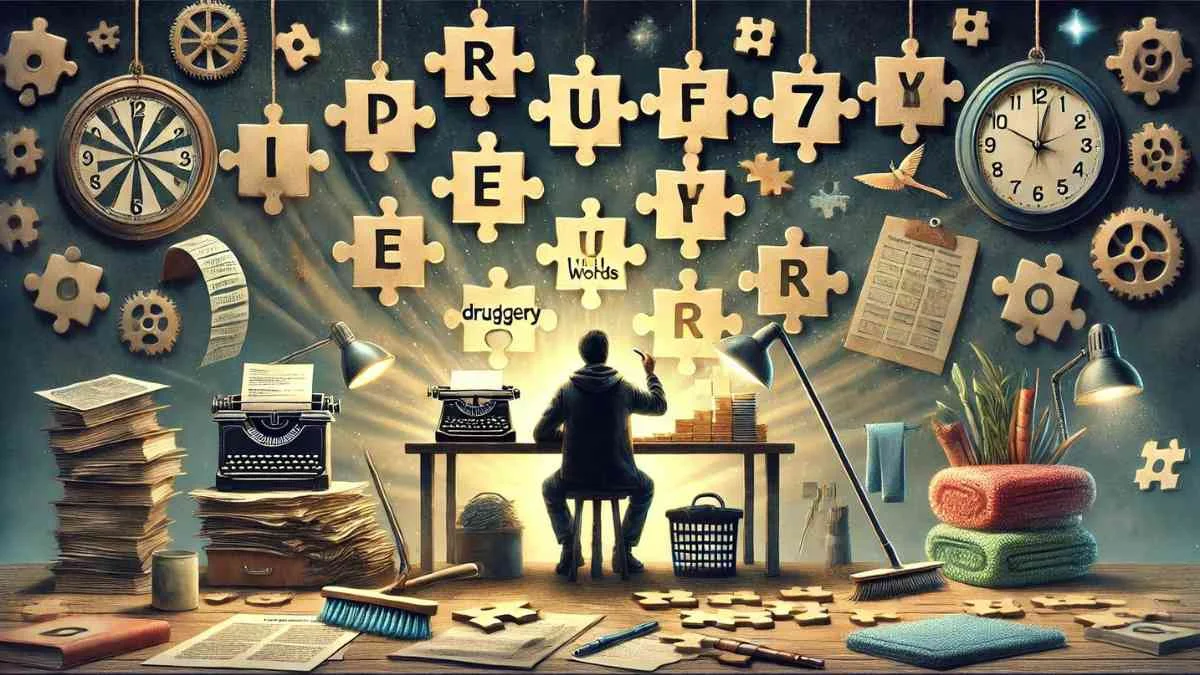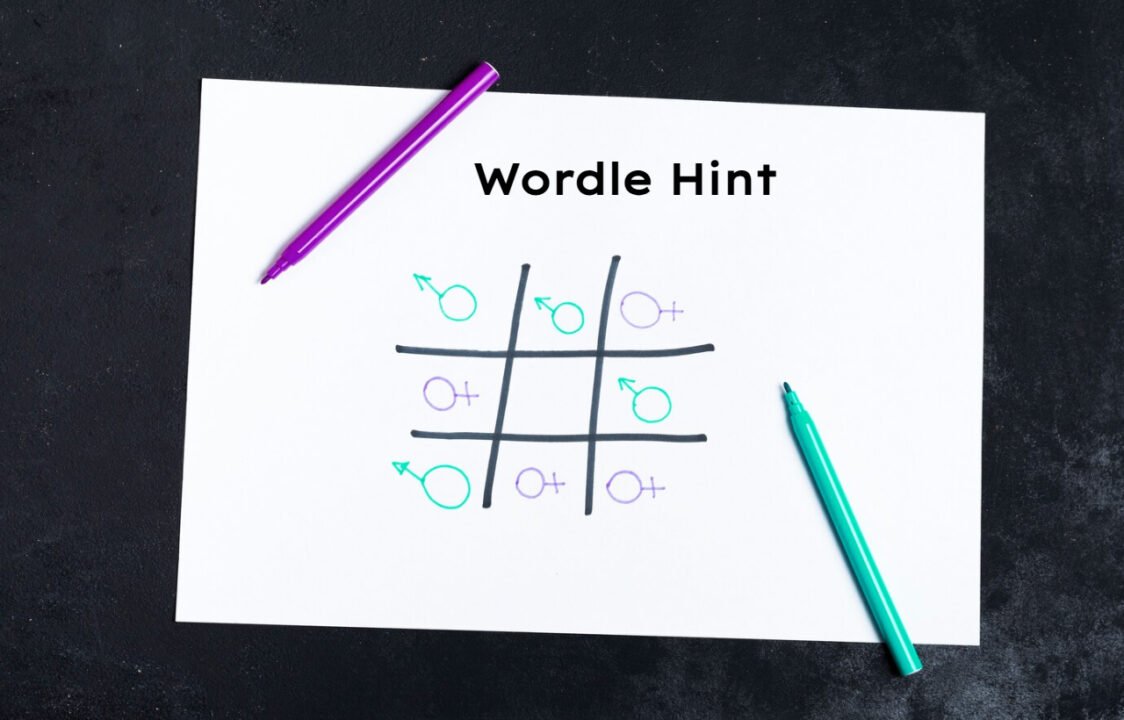The world of word games offers endless entertainment, and “7 Little Words” has become a favorite among fans for its mix of creativity, challenge, and satisfaction upon finding the correct answers. This article delves into “drudgery 7 little words” and other tricky clues, offering expert advice on how to decode each puzzle efficiently. With the right strategies, tackling these puzzles can shift from frustrating drudgery to an enjoyable brain workout.
Understanding the “Drudgery 7 Little Words” Puzzle
To get started, let’s explore what makes “7 Little Words” unique. This word puzzle game, unlike traditional crosswords or word searches, provides players with a series of clues and scrambled letters. Players need to assemble the correct letters into words that match each clue. While it sounds simple, the “7 Little Words” format includes twists that make certain clues, like “drudgery,” more challenging than others.
You May Also Like: 1v1 lol unblocked: Play and Dominate
“Drudgery” in “7 Little Words” is often tricky because it relates to a concept rather than a specific object or person, challenging players to think abstractly about synonyms that convey a sense of monotonous or tiresome work.
Why “Drudgery 7 Little Words” Challenges Players
Players find “drudgery” difficult due to its subtle meaning and the potential synonyms. The word signifies dull or difficult work, often seen as repetitive. This presents a challenge as it requires understanding synonyms such as “labor,” “toil,” “work,” or “grind.” In “7 Little Words,” clues like these test players’ vocabulary depth and creative thinking, rewarding those who are well-prepared with a broader understanding of language.
Tips for Solving “Drudgery 7 Little Words” and Similar Puzzles
To master challenging clues in “7 Little Words,” follow these strategies:
- Think Synonymously
Consider synonyms or words that could relate indirectly. For “drudgery,” think of words such as “labor,” “toil,” or “grind.” - Focus on Letter Combinations
Use trial and error with different letter combinations. Scrambling and unscrambling letters can reveal hidden words you might overlook at first glance. - Break Down the Clue
If the clue offers any subtle hints or secondary meanings, use those to refine your search. For instance, with “drudgery,” think about words related to difficult or tiring work. - Take Breaks and Revisit
Giving your mind a rest can help you come back with a fresh perspective, which often brings new insights. - Use Word Pattern Recognition
Recognize common word patterns or endings. For example, words that end in “-ing” might come to mind, helping you to eliminate incorrect options faster.
Common Pitfalls in “7 Little Words” and How to Avoid Them
Players often get stuck due to similar-sounding or similarly spelled words, particularly with clues like “drudgery.” Here are common mistakes and tips on how to avoid them:
- Overthinking Simple Clues
In many cases, the simplest answer is the correct one. Consider basic synonyms before venturing into complex words. - Focusing Only on Initial Letters
When assembling letters, remember that the solution may not always start with the first letter shown. Rearranging all options might reveal the answer. - Ignoring Clue Contexts
Each clue in “7 Little Words” has a context that can guide you toward the correct answer. Consider the theme and think broadly about possible words.
Strategies for Improving Overall Puzzle Solving Skills
The more puzzles you solve, the better you’ll become at recognizing word patterns, themes, and synonyms. Here are ways to improve your general puzzle-solving abilities:
- Daily Practice
Like any skill, practice is essential. Dedicate a few minutes each day to playing “7 Little Words” or similar word puzzles. - Expanding Vocabulary
Build your vocabulary by reading or using a dictionary app. A larger vocabulary will help you match clues with less effort. - Using Word Association Techniques
Creating mental associations between words can help you recall them more quickly. Associating “drudgery” with images or ideas of tiresome work can make it easier to remember synonyms during puzzles. - Attempting Different Puzzle Types
Exploring different word games like crosswords, anagrams, or Scrabble can give you additional perspectives on how words relate to one another, strengthening your puzzle-solving foundation.
Fun Facts About “7 Little Words” and Puzzle-Solving
Did you know that regular puzzle-solving can improve cognitive functions, such as memory and problem-solving skills? Studies show that engaging in mental challenges like “7 Little Words” enhances brain plasticity, which helps in various everyday tasks. Beyond mental exercise, word puzzles like “7 Little Words” are enjoyable and engaging, bringing together word enthusiasts and building a sense of accomplishment.
Why Word Games Like “7 Little Words” Are Good for Your Brain
Solving word games doesn’t just boost vocabulary; it also supports brain health. Regular mental stimulation can improve memory, increase attention to detail, and even delay age-related cognitive decline. Word games encourage players to think outside the box, enhancing creativity and analytical skills.
How “Drudgery 7 Little Words” Fits Into the Larger Puzzle Landscape
Within the broad spectrum of word games, “7 Little Words” stands out for its simplicity and challenge blend. Unlike many puzzle games, “7 Little Words” is not confined by grid layouts or strict rules, making it an accessible and relaxing brain exercise.
Sample Puzzles Similar to “Drudgery 7 Little Words”
For those who enjoy “7 Little Words,” other popular puzzles might also spark interest. Here are a few that you might enjoy:
- Crossword Puzzles
Crosswords offer a classic puzzle experience, requiring general knowledge and vocabulary skills. - Anagrams
Anagram puzzles ask players to rearrange letters to form new words, enhancing letter arrangement skills. - Word Search
This classic game challenges players to find words hidden within a grid, enhancing visual scanning and word recognition. - Cryptograms
These coded puzzles require decoding a message by substituting letters, improving logical thinking and pattern recognition.
FAQs
How long does it take to solve “7 Little Words” puzzles?
The time can vary from a few minutes for straightforward clues to 20 minutes or more for complex ones, depending on your experience level.
What should I do if I’m stuck on a clue like “drudgery” in “7 Little Words”?
If you find yourself stumped, try thinking of simple synonyms related to the clue, or take a break and come back to it later with fresh eyes.
Can I play “7 Little Words” offline?
Yes, “7 Little Words” offers offline play options, allowing you to solve puzzles without an internet connection.
Are there any other games similar to “7 Little Words”?
Yes, games like crosswords, anagrams, and word searches provide similar mental stimulation and vocabulary challenges.
Is “7 Little Words” suitable for children?
The game can be suitable for older children and teens who have a good grasp of vocabulary and enjoy puzzles. It’s best suited for ages 10 and up.
What are the benefits of solving puzzles like “7 Little Words”?
Regular puzzle-solving can improve vocabulary, memory, problem-solving abilities, and overall mental flexibility.
Conclusion
“7 Little Words,” especially clues like “drudgery,” offers a unique challenge for puzzle enthusiasts. Each game is an opportunity to broaden your vocabulary, test your creativity, and enjoy the rewarding feeling that comes from solving a tricky clue. With regular practice and the right techniques, even the most challenging clues can be approached with confidence and a sense of fun. Embrace the journey of solving, learn from each puzzle, and turn drudgery into discovery as you explore the fascinating world of “7 Little Words.”





